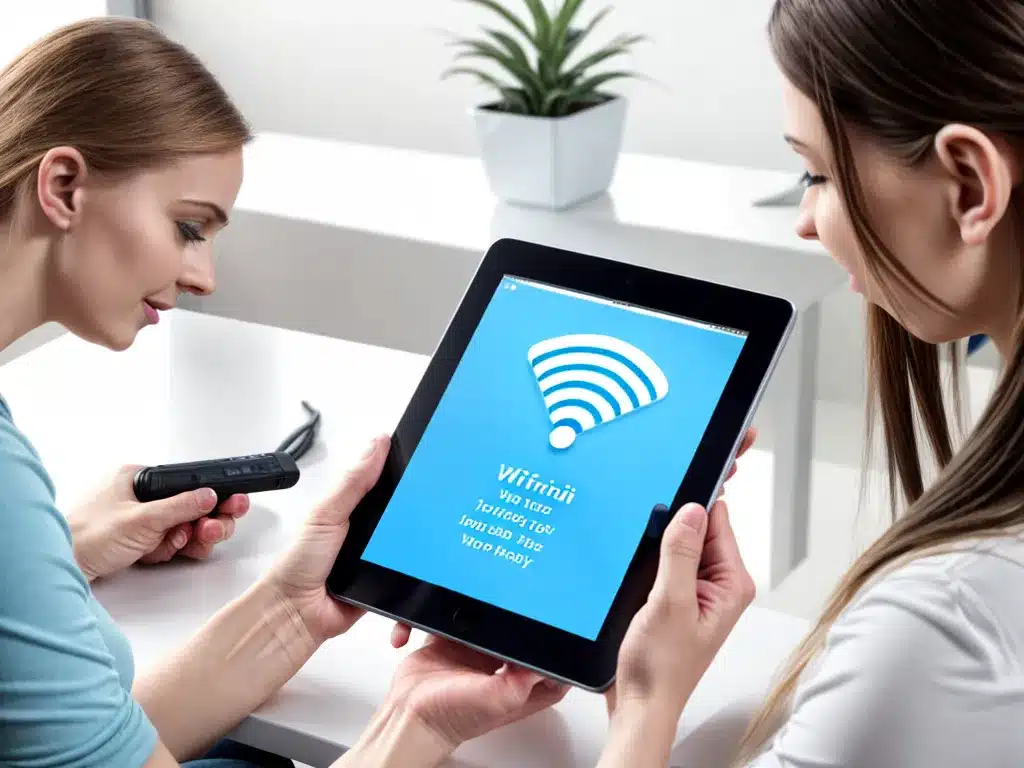
Introduction
Staying safe online is more important than ever in 2024. As more of our lives move online, it’s crucial to take steps to secure your WiFi hotspots and protect your personal information. In this article, I’ll provide my top tips for staying safe when connecting to public WiFi in 2024.
Use a VPN
The best way to protect yourself on public WiFi is to use a Virtual Private Network (VPN). A VPN encrypts all of the data you send and receive while connected to the internet, preventing hackers from accessing your information.
Some top VPNs to consider in 2024 are NordVPN, ExpressVPN, and Surfshark. These services only cost a few dollars per month but are worth it for the enhanced security they provide. When using public WiFi, connect to your VPN app before doing anything else online.
A VPN is especially important when accessing sensitive information like online banking, emails, and shopping sites with your credit card info. It creates a secure tunnel between you and the website or service you’re accessing.
Avoid Public WiFi For Sensitive Tasks
While a VPN is great, I still recommend avoiding public WiFi altogether for banking, shopping, and accessing sensitive accounts. It’s safest to use your cellular data plan or wait until you’re on a password-protected private WiFi network.
Hackers can more easily intercept data on open public networks. Only use public hotspots for basic web browsing and non-critical tasks. Check your bank statements and credit reports regularly for any unauthorized activity.
Use Two-Factor Authentication
Two-factor authentication (2FA) adds an extra layer of security beyond just a password. Many major sites like Gmail, Facebook, and financial institutions now offer 2FA.
With 2FA enabled, you’ll enter your password and then receive a code via text, call, or authentication app. This ensures that even if your password is compromised, a hacker still can’t access your accounts without the 2FA code.
Avoid Suspicious Networks
Before connecting to any public WiFi hotspot, check the network name. Hackers often set up fake hotspots with innocuous names like “Coffee Shop WiFi.” Verify the name matches the actual business.
Also beware of any popups after connecting, especially those warning of “connection issues” and asking for personal information. Close out of them immediately and disconnect from any sketchy networks.
Turn Off File Sharing
Most computers and phones allow you to share files and folders with other devices over the network. While convenient at home, this allows hackers easy access to your data on public WiFi.
Go into your device’s settings and disable file sharing. Also turn off printer and media sharing that may be enabled by default.
Use Secure Websites
When possible, only visit sites using HTTPS secure server connections versus standard HTTP. Look for the lock icon by the URL and “https” at the beginning.
Your data is encrypted on HTTPS sites, making it more difficult for hackers to steal information. Check that sites are using updated TLS 1.2 or 1.3 encryption protocols for optimal security.
Avoid Public Computers
Be cautious when using public computers at hotels, libraries and internet cafes. You don’t know if they have keylogging or other malware installed. Don’t access any sensitive accounts and make sure to fully log out when you’re done.
Use Strong Passwords
Having weak passwords makes you an easy target for hackers on public WiFi. Use long, complex passwords of at least 12 characters. Avoid common words and personal information. Enable multi-factor authentication when possible.
Use a password manager like LastPass or 1Password to generate and store strong, unique passwords for all of your accounts.
Keep Software Updated
Outdated software often has vulnerabilities that hackers can exploit. Before connecting to public WiFi, make sure your operating systems, antivirus software, browsers, VPNs, and other programs are fully updated.
Enable automatic updates whenever possible to stay on top of the latest security patches. Don’t use software that is no longer supported and receiving updates.
Use Caution with Downloads
Be wary of downloads over public WiFi, as they may contain malware. Avoid torrent sites and other piracy hubs.
Even legitimate sites can sometimes serve up malware in ads or links. Scan any downloaded files with your antivirus software before opening. If possible, avoid downloading anything over public WiFi altogether.
Monitor Your Accounts
Keep a close eye on all your accounts after using public WiFi. Look for any unauthorized logins, charges, or password resets. Take action immediately if something looks amiss.
Be proactive about changing passwords every few months, especially for critical accounts like email, banking, and credit cards.
Use a Firewall
Firewalls add a layer of protection beyond your antivirus software. They monitor network traffic and block potential threats.
Windows and MacOS have built-in firewalls that you can enable for public WiFi use. There are also third-party firewall programs that offer robust features.
Avoid Public WiFi For Kids
If your children use smartphones, tablets, or laptops, I recommend setting up a secure mobile hotspot for them instead of having them connect to public WiFi.
Kids are often less cautious online, so limiting their exposure is wise. Block access to inappropriate sites with parental control software. Closely monitor their online activities.
Trust Your Instincts
If you get a bad feeling about a WiFi hotspot or network, don’t use it. Don’t feel obligated to connect just because it’s there. Pay attention if your antivirus software detects anything suspicious.
When in doubt, tether to your smartphone’s cellular data plan or use your phone as a mobile hotspot instead. Trust your gut if you feel unsafe using any public WiFi.
Conclusion
Public WiFi hotspots certainly carry risks, but following these tips will help you use them more securely in 2024. Take precautions like using a VPN, avoiding sensitive activities, enabling two-factor authentication, and monitoring accounts closely after connecting. With the right steps, you can safely reap the benefits of public WiFi!












